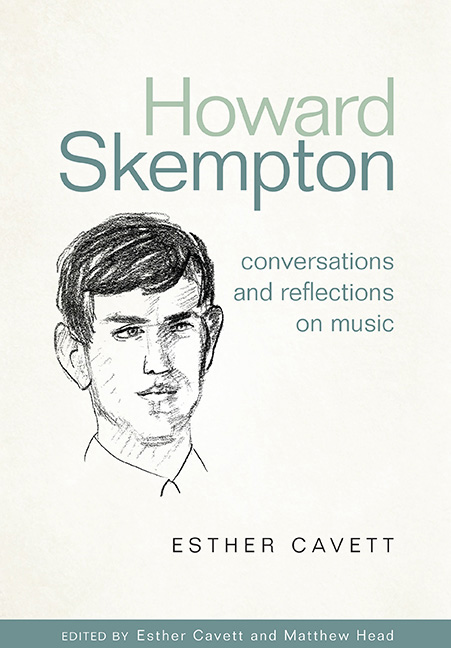Book contents
- Frontmatter
- Dedication
- Contents
- List of illustrations
- List of contributors
- Preface
- Roles and acknowledgements
- Introduction
- Editorial conventions
- Timeline
- Chapter One Histories
- Conversation One: Childhood and teenage years
- Reflection One: Music and/as home
- Chapter Two Influences
- Chapter Three Pattern and shape
- Interval: Previously unpublished manuscripts
- Chapter Four Influencing
- Chapter Six Narrative and closure
- Appendix One Authorized worklist
- Appendix Two Discography of first commercially distributed recordings
- Select bibliography
- Index
Reflection One: Music and/as home
from Chapter One - Histories
Published online by Cambridge University Press: 10 September 2019
- Frontmatter
- Dedication
- Contents
- List of illustrations
- List of contributors
- Preface
- Roles and acknowledgements
- Introduction
- Editorial conventions
- Timeline
- Chapter One Histories
- Conversation One: Childhood and teenage years
- Reflection One: Music and/as home
- Chapter Two Influences
- Chapter Three Pattern and shape
- Interval: Previously unpublished manuscripts
- Chapter Four Influencing
- Chapter Six Narrative and closure
- Appendix One Authorized worklist
- Appendix Two Discography of first commercially distributed recordings
- Select bibliography
- Index
Summary
Skempton's childhood and teenage years on Merseyside in the 1950s and 60s are of more than contextual and background interest. I say this not in the spirit of psychoanalysis – he records no significant conflict or trauma – but simply because he discovered his compositional voice astonishing early, while still at home. Musical values and techniques with which he still identifies emerged before he left to study at Ealing Technical College in September, 1967, aged 19. While characteristically modest in recounting this early maturity, Skempton is (just as characteristically) precise about it. The piece that he calls his “Opus 1” – A Humming Song for piano and voice – was composed in April, 1967, after he'd left school but before he'd left home (C2 §4). This is worth spelling out because Skempton addresses this piece out of chronological order, in his second Conversation. Thus, by September, when he moved to London to enter higher education, his student days were, in a sense, already behind him – even if he didn't know it at that point.
In the untethered period between school and a last-minute place on a degree programme – a liminal time affording the kind of inadvertent autonomy often evoked in his recollections – Skempton composed a piece that, in his telling, discloses both his sources of inspiration and his singularity. Through its self-evident affinity with Morton Feldman's spacious, timeless piano music, A Humming Song conjures a genealogy, just as, through this affiliation, it articulates Skempton's individuality. The music is intimate and small scale, refuses categorization as instrumental or vocal, is ambiguously consonant, rigorously structured and determined by chance, and derived from seemingly home-spun materials. Slow and quiet, suspending a pulse, the piece seems to listen to itself as it unfolds, tuning the ear to the composer's emerging voice. The novel ontologies associated with experimental music – the shift from a bounded work to act of performance, and from composer- centeredness to improvisation and collaboration – do not really apply. In what he styles his “prototype” composition (C2 §3), a piece notated in all its essentials, Skempton employed the venerable but also homely ontology of a work (an Opus) to shelter his music from the world.
- Type
- Chapter
- Information
- Howard Skempton: Conversations and Reflections on Music , pp. 15 - 30Publisher: Boydell & BrewerPrint publication year: 2019



